People
Lori Kowaleski-Jones
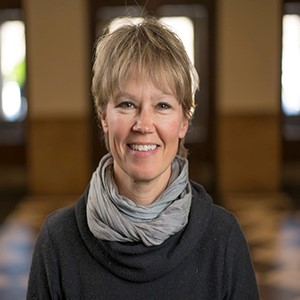
Lori Kowaleski-Jones is a Professor in the Department of Family and Consumer Studies (FCS) and Director of the Interdisciplinary Exchange for Utah Science (NEXUS). Her main research interests are in the areas of physical and social wellbeing of individuals and families with a focus on how public policy, neighborhood environments and family factors maximize individual wellbeing. In the past, she has considered the effects of food assistance programs on child food insecurity and wellbeing. Current work involves an intervention to considers increasing the reach of the Earned Income Tax Credit (EITC). Connect to Collect proposes to increase the participation rate in the EITC and Child Tax Credit programs through innovatively extending provision of free tax preparation via partnerships with the health care system, grass roots community organizations, and new information technology. Currently, she is the PI on our NIDDK/NIH project that studies intergenerational diabetes risk and the role of the built environment using data from the Utah Population Database.
Barbara Brown
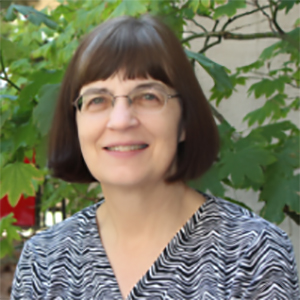
Barbara Brown, Professor Emerita, is an environmental psychologist. Her work examines how community designs are related to human and non-human health and well-being. Using quasi-experimental approaches, she has examined how the use of new light rail lines relates to increases in objectively-measured physical activity and lower BMI, as well as changed attitudes and walkability features in the neighborhood. Similarly, she has examined how more walkable neighborhood designs are associated with lower BMI. Ongoing research examines whether the walkability predictors of higher BMI are also associated with higher diabetes risks. She also has examined how the design of buildings and landscaping create ecological traps that attract birds into deadly window strikes.
David Curtis

David Curtis, Assistant Professor, is an interdisciplinary social scientist who studies community influences on population health and health disparities. His research has leveraged large-scale data resources to measure area-level social and environmental conditions and their link with population health. For instance, to measure access to parks and recreation resources, he has used local government expenditures, satellite imagery, geospatial data, and online user reviews. Such rich park data are being used to understand the weight-related and metabolic effects of being proximate to highly appealing parks. In another research project, David is examining how area-level resources influence the geographic patterning of birth outcomes for Black women, with a focus on structural and institutional determinants of racial heath disparities
Taylor Holladay
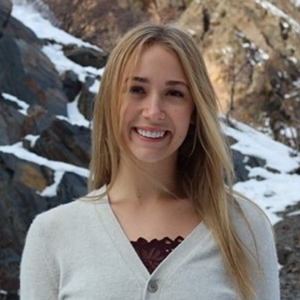
Taylor Holladay is a first-year Ph.D. student at the University of Utah in the Human Development and Social Policy program, which takes an interdisciplinary approach to studying social policy as it relates to human development and well-being, particularly in economic, community, and family contexts. Her primary research interest lies in the genderization of labor division, both market and nonmarket, within households and how such division can and does economically impact women and mothers over their lifetimes. She is excited to work with the Energy Balance Research Group and develop a more holistic understanding of human health and welfare.
Kyle Kole
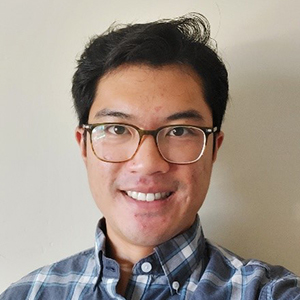
Kyle Kole is a postdoctoral fellow in the Energy Balance Research Group. He graduated from the University of California, Irvine, with a Ph.D. in economics. His research applies empirical methods to address questions regarding health and amenities in urban neighborhoods. Within the research group, Kyle’s primary focus is estimating the annual direct cost of Type 2 Diabetes and forecasting the total direct and indirect cost of Type 2 Diabetes over a lifetime using the All Payer Claims Database.
Huong Meeks

Huong Meeks, Ph.D., is an Assistant Professor in the Department of Pediatrics and a faculty statistician in the Data Coordinating and Analysis Center (DCAC). She is a life course epidemiologist and demographer with special expertise in population health and longitudinal data, familial and survival analysis. Her research interest focuses on the longitudinal effects of family, individual, and neighborhood socioeconomic status, and other social determinants of health on adverse health outcomes in pediatric critical care context. She is particularly interested in the impact of neighborhood characteristics and family characteristics, including social support network, on outcomes of pediatric patients with chronic conditions and their families.
Ken Smith

Ken Smith is a biodemographer and Distinguished Emeritus Professor of Family Studies and Population Science at the University of Utah. He is also a Huntsman Cancer Institute Investigator and former Director of the Pedigree and Population Program at the University of Utah that develops and maintains the Utah Population Database, one of the world’s largest resources that links individual-level genealogical, medical and demographic records. He previously was the Director of Interdisciplinary Exchange for Utah Science (NEXUS) and is presently the Executive Director of the Wasatch Front Research Data Center (one of 33 secure RDCs in the nation managed by the US Census Bureau). He has long-standing interests in familial aspects of health, cancer, aging and longevity. He investigates the socio-environmental and genetic origins of aging in humans and exceptional longevity in families. His current work includes a focus on the role of early life events in affecting the mortality dynamics and the life chances and health outcomes of middle aged and older adults. His research interests extend to the effects of family, community, and socioeconomic factors affecting health outcomes, obesity, diabetes mortality, and longevity of individuals.
Cathleen Zick
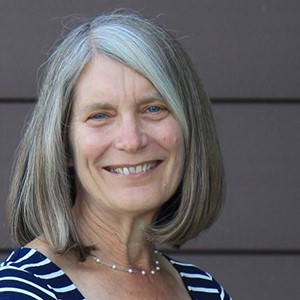
Cathleen D. Zick, Ph.D. is a consumer economist and professor emeritus in the Department of Family and Consumer Studies. For over 40 years, her research has focused on questions of how public policies shape the choices families make regarding the allocation of scarce time and money resources. Within the context of energy balance research, her contributions to the team science are twofold. First, she is assessing how neighborhood food environments relate to type 2 diabetes risk. Second, she is examining the direct and indirect societal costs of type 2 diabetes and how changes in neighborhood features (e.g., mixed land use zoning, green space requirements) might alter these costs.
